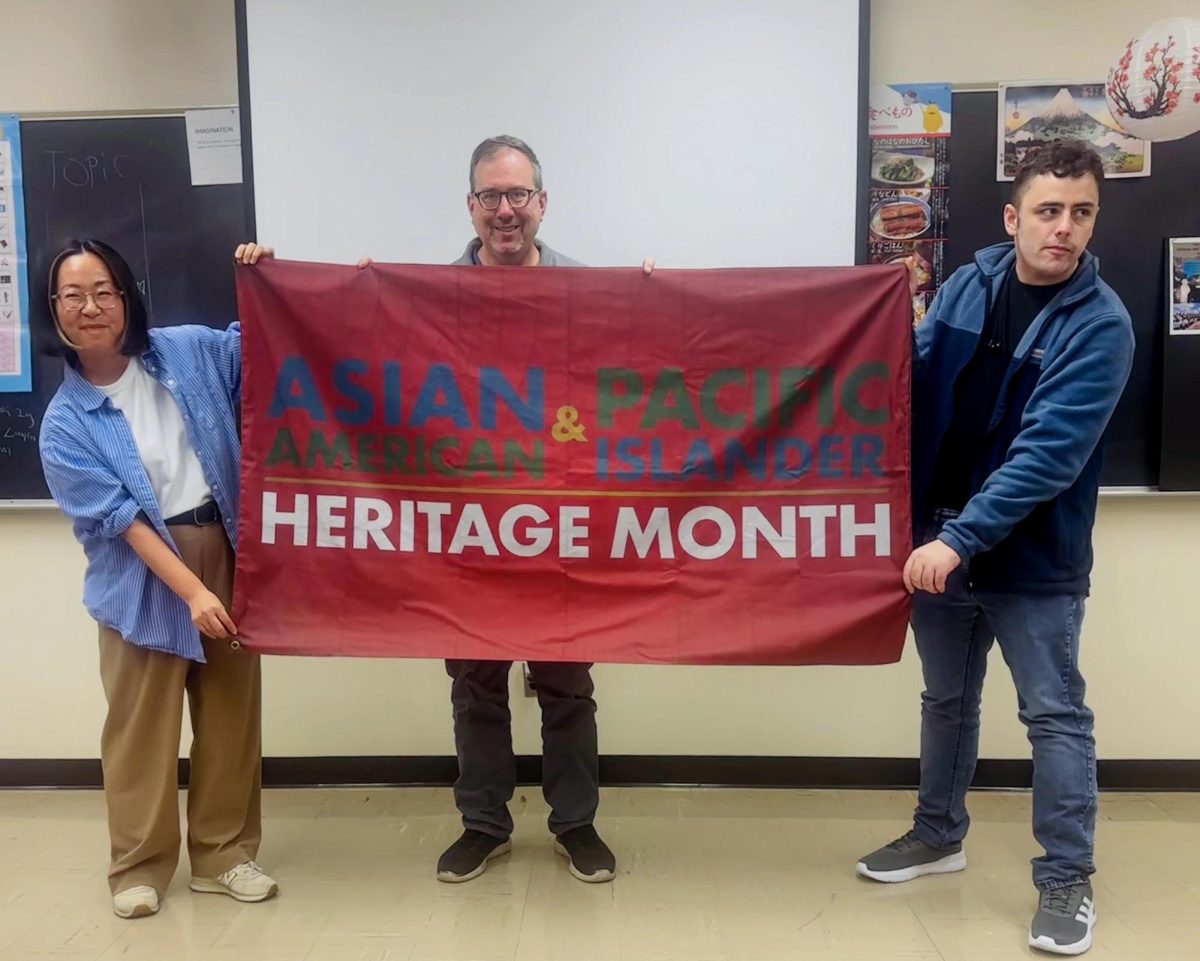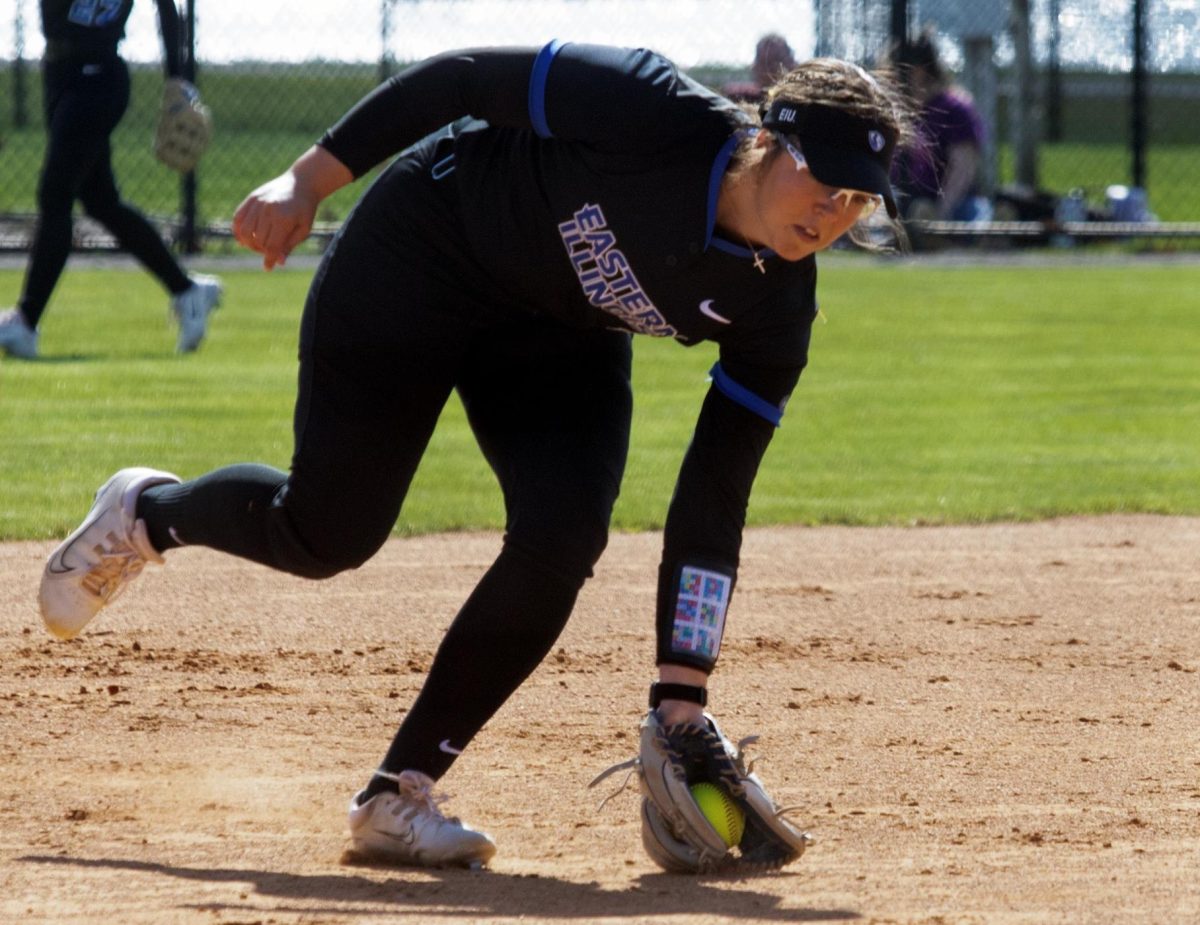CUPB academic affairs subcommittee discusses cuts ranging from administration to study abroad
The Council on University Planning and Budget subcommittee for academic affairs discussed the cuts pertaining to Eastern’s current budget “mess.”
To start the meeting, each of the six members presented their own proposals to the subcommittee after each of them read through the program analyses.
Anita Shelton, chairwoman of the history department, said the university has had to deal with many different forces when it came to the decline in enrollment during the past 10 years.
“It might be the sorry truth that whosever fault it is that we have gotten into this mess and some of it are forces outside of us, but some of it is on campus here and we are all being asked to pay for it by cutting the things that have been, you know, in many ways we have been doing very well,” Shelton said.
Shelton also said she wonders if administrators could be reviewed as a place where cuts could come from.
“It looks as if we have a lot of administration,” Shelton said. “I wonder if associate chairs and assistant chairs are really the place to go looking for major savings.”
Darlene Riedemann, a business professor, then brought up concerns she has with the School of Continuing Education.
“The school of continuing education – I don’t understand that whole school,” Riedemann said. “Does it relate to our mission? That would be a concern or question.”
While she said she encourages her students to participate in study abroad experiences, Riedemann also expressed concerns about the costs of the study abroad program at Eastern.
“The students can capture not the experience but they can capture that information they are learning- a lot of that- here,” Riedemann said. “Do we need to have that expense at this point? I encourage my students to go, but it is an expense.”
She continued the discussions with questioning the profitability of camps occurring at Eastern.
“I am all for generating revenue through camps, but it looks like there is a fair amount of cost to it,” Riedemann said. “I would say raise the price of the camps to reduce our obligation on the camps.”
Riedemann continued by asking why registered student organizations cannot do more things around campus to enrich the campus community.
“I read in the newspaper that the student body wants the university to repaint the panther paws,” Riedemann said. “Why aren’t the RSOs doing that? Why aren’t the students doing that? Why wouldn’t that be a service event for the student organizations? Why does that come back to the university?”
She said she feels like the inclusion of RSOs in issues such as that help foster “shared governance.”
“I think we need to think more like that to get (students) more involved in this shared governance and doing some of the work too if they want those things,” Riedemann said.
The talk then switched to the topic of which area should feel the brunt of most of the cuts.
“In general, I don’t think academic affairs has to take the lion’s share of that $8 million, but I do think there is some duplicity with going and maybe re-evaluating things,” Riedemann said.
Assege HaileMariam, a psychology professor, said she has seen the number of faculty in her department decline since she came to Eastern in 1999, while the number of students has increased.
“When we look at the budget that has been given to us and you look at the budget that external bodies have done analysis on, there are some inconsistencies,” HaileMariam said.
She also said the ongoing cuts to academics, such as the reduction of 12 faculty from the College of Arts and Humanities on top of the current search for $8 million in cuts, is taking its toll on the academic rigor of the university.
“I think I can say that we (in academic affairs) have seen our share of cuts,” HaileMariam said. “I believe in efficiency, and maybe there are some areas we need to look at so that we are streamlined, other than that, I will not in any way support a cut for academic affairs. The cuts have to come from other areas that have not seen as much cuts.”
Mahyar Izadi, the dean of the Lumpkin School of Business, agreed, and said the university needs to “protect academics.”
“My thought is, this is a university, this is all about academics, protect academics the best we can, but yet you have to consider the facts that surround us,” he said.
He went on to say the support personnel for the university, such as facilities planning and management is crucial, as it is not as easy to broadly cut that group.
“Given that fact that I 100 percent support academics, I hate to lose that, but the fact that is there are less students right now,” Izadi said.
The subcommittee also asked Blair Lord, the provost and vice president for academic affairs, to prepare budget information comparing Information Technology Services and the Center for Academic Technology Support budgets over recent history.
The subcommittee will present the various recommendations to the entire council at its next meeting Friday.
Jack Cruikshank can be reached at 581-2812 or jdcruikshank@eiu.edu.






![[THUMBNAIL EDITION] (From left to right) Head football coach Chris Wilkerson works with his son student assistant coach Peyton Wilkerson at football practice at O'Brien Field on the Eastern Illinois University campus on Thursday.](https://www.dailyeasternnews.com/wp-content/uploads/2025/04/FB_25_O-1-e1744234837107-1200x596.jpg)




![[Thumbnail Edition] Charleston High School sophomore Railyn Cox pitches the ball during Charleston's 8-7 win over Flora High School on Monday, March 31.](https://www.dailyeasternnews.com/wp-content/uploads/2025/04/SBHS_01_O-1-e1743982413843-1200x1023.jpg)



![[Thumbnail Edition] Senior Foward Macy McGlone, getsw the ball and gets the point during the first half of the game aginst Western Illinois University,, Eastern Illinois University Lost to Western Illinois University Thursday March 6 20205, 78-75 EIU lost making it the end of their season](https://www.dailyeasternnews.com/wp-content/uploads/2025/03/WBB_OVC_03_O-1-e1743361637111-1200x614.jpg)




















![[Thumbnail Edition] Eastern Illinois softball senior infielder Briana Gonzalez resetting in the batter's box after a pitch at Williams Field during Eastern’s first game against Southeast Missouri State as Eastern split the games as Eastern lost the first game 3-0 and won the second 8-5 on March 28.](https://www.dailyeasternnews.com/wp-content/uploads/2025/04/SBSEMO_11_O-1-e1743993806746-1200x692.jpg)

















![The Weeklings lead guitarist John Merjave [Left] and guitarist Bob Burger [Right] perform "I Am the Walrus" at The Weeklings Beatles Bash concert in the Dvorak Concert Hall on Saturday.](https://www.dailyeasternnews.com/wp-content/uploads/2025/03/WL_01_O-1200x900.jpg)
















